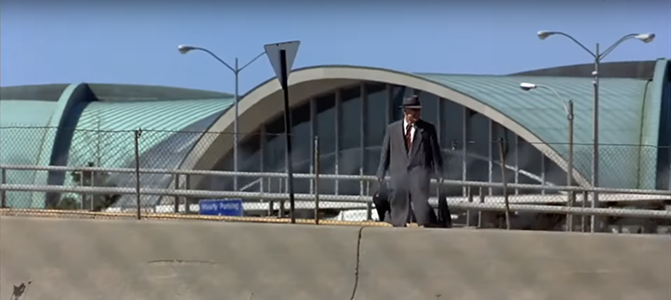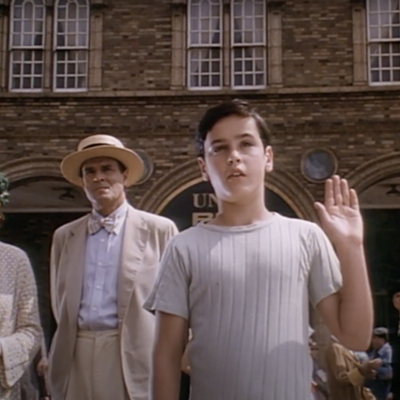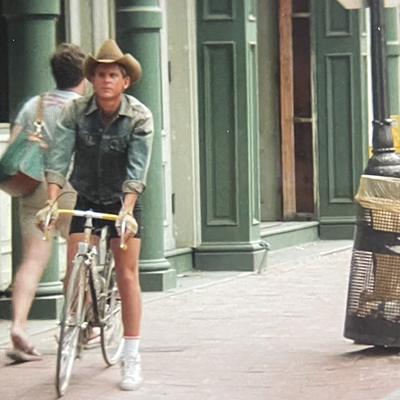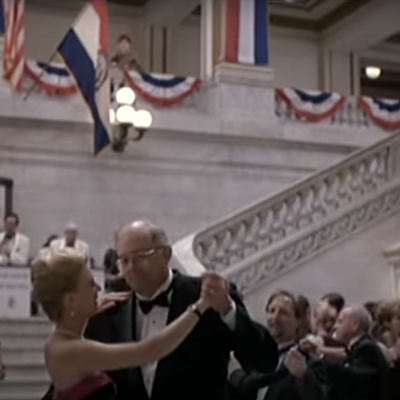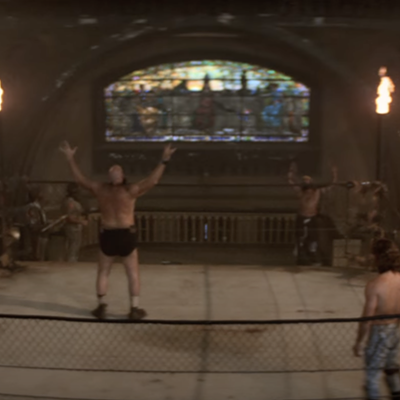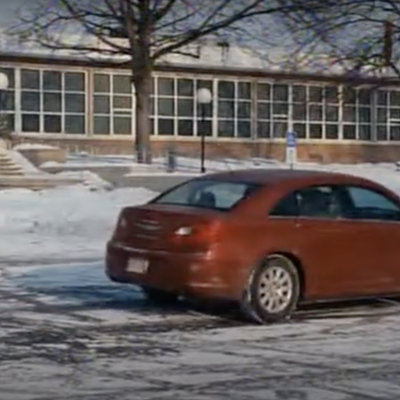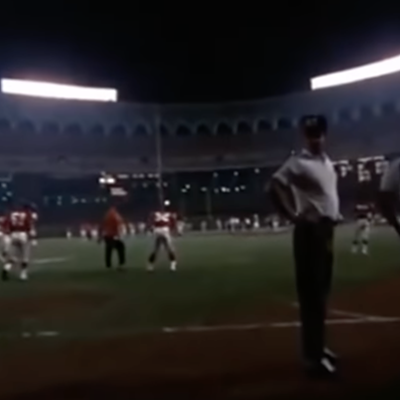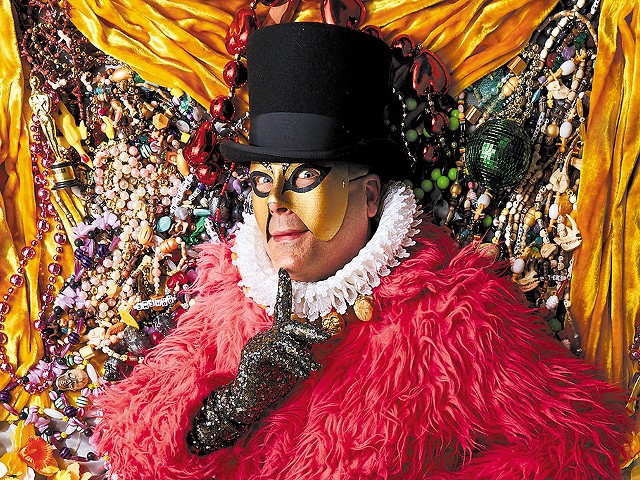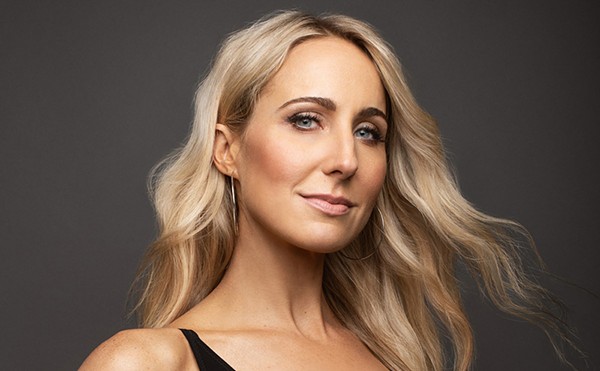For actor Troy Bronson, portraying a former chemistry professor at Washington University brought new insights into history — and science, too.
Joseph W. Kennedy played a key role in discovering plutonium in 1941, when he was in his early 20s. He later became a division leader in the Manhattan Project before becoming a professor and chairman of the department of chemistry at Washington University from 1946 to 1956, according to the university.
It’s through Kennedy’s work on the Manhattan Project that he became immortalized in Christopher Nolan’s blockbuster film Oppenheimer.
Oppenheimer, which won the award for Best Motion Picture at the Golden Globes on January 7, chronicles the career of J. Robert Oppenheimer, who directed the Manhattan Project during World War II.
Kennedy is portrayed by Bronson, who coincidentally is studying at the University of California in Berkeley — which is also where Kennedy received his Ph.D. in 1939.
“I'm studying media sciences where I’m investigating the relationships between technology, culture, and media from the printing press to the current digital era,” Bronson says. “I'm always being pushed to understand how stories like Joseph W. Kennedy's are appreciated in our complex modern context, which is why this profession interests and pushes me so much.”
Through his research, Bronson learned that Kennedy was of immense importance to discoveringplutonium, which was crucial to the Manhattan Project and continues to shape space exploration and energy sectors today.
“I tracked him all the way up until his death starting from the place where he was born in Nacogdoches, Texas, and all the way up to St. Louis at [Wash U],” Bronson says of the research he undertook to understand Kennedy’s life and work. “I relied a lot on Atomic Energy, papers and websites. I also went to the plutonium room over here at UC Berkeley, where he discovered plutonium.”
Kennedy’s work at Wash U is not something the film touches on, but continues to make an impact on the campus. The university’s Kennedy Lecture Series was named in his honor; there’s also a portrait of him hanging in the university’s Ronald and Karen Rettner Gallery in Wrighton Hall.
A website for the lecture series explains this about Kennedy’s efforts on campus:
“Prior to 1946, the Department of Chemistry at Washington University was small and devoted almost entirely to undergraduate teaching. With the arrival of Professor Kennedy in 1946, however, this picture changed. Bringing with him a group of young scientists, he gave the Department a new orientation, and it is now recognized not only for its commitment to high quality undergraduate education, but also to strong research programs and to education at the graduate level. The national stature that the Department has acquired over the past half-century is a direct consequence of the impetus provided by Professor Kennedy.”
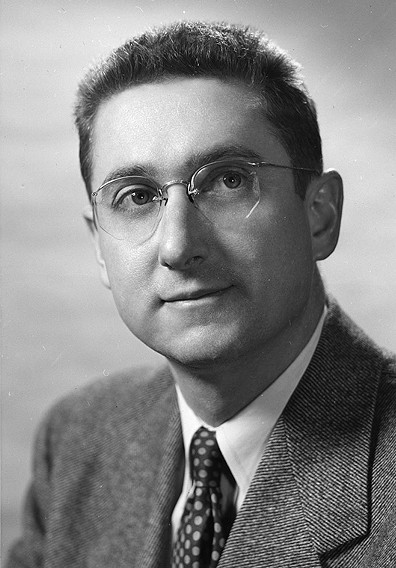
Wash U Professor of Chemistry and Physics Lee Sobotka elaborated on that in an email. “Joe Kennedy modernized the teaching of general chemistry, helped open the WashU graduate school to African Americans a decade before the civil rights movement found traction, and assisted in hiring the ‘blackballed’ scientist Martin Kamen at the WashU medical school and subsequently defended him from McCarthyite slander,” he writes. “Joe Kennedy had a profound influence on WashU.”
Unfortunately, though, Kennedy’s time on campus was relatively short. He died of stomach cancer at age 40.
For Bronson, learning about his remarkable life has been a great experience. Bronson marvels that he was dressed for the film just like Kennedy was in a photo he found on his Wikipedia page. During his time on set, Bronson was able to see the University of California - Berkeley’s campus turn back in time to the 1940s.
“My favorite part about being on set was seeing the whole Berkeley campus turn back to just like it was in 1939,” he says. “They dressed all around like it was before, meaning that they covered lamps and stuff like that.”
He adds, “Because it was filmed with 70 millimeters, meaning there weren't a bunch of tables and a lot of technology going around, and the director had to keep looking at the camera because he didn’t have a screen to see how it turned out.”
Bronson believes playing the role of Kennedy gave him a deeper connection to the complexities of scientific discovery and the pivotal moments that have shaped the world.
“Not only has studying the life of one of St. Louis' most notable persons increased my respect and comprehension of the area, but it has also brought to light the lasting impact of Kennedy's work,” he writes in an email. “This investigation into Kennedy's accomplishments has been more than just an acting gig; it's been an investigation into the core of human intellect and ambition, which has caused me to consider the legacy that humans leave behind.”
Bronson says he’s now hoping to travel to St. Louis one day.
“I can't wait to see the university and travel the same streets in order to get a closer look at the tale that has captured my attention for so long,” he adds.
Oppenheimer was re-released on January 26 and is currently playing at Marcus Theatres (various locations including 1830 South 1st Capitol Drive, St. Charles), Alamo Drafthouse City Foundry (3765 Foundry Way) and will be coming to Hi-Pointe Theatre (1005 McCausland Avenue) Friday, February 23.
Subscribe to Riverfront Times newsletters.
Follow us: Apple News | Google News | NewsBreak | Reddit | Instagram | Facebook | Twitter | Or sign up for our RSS Feed


